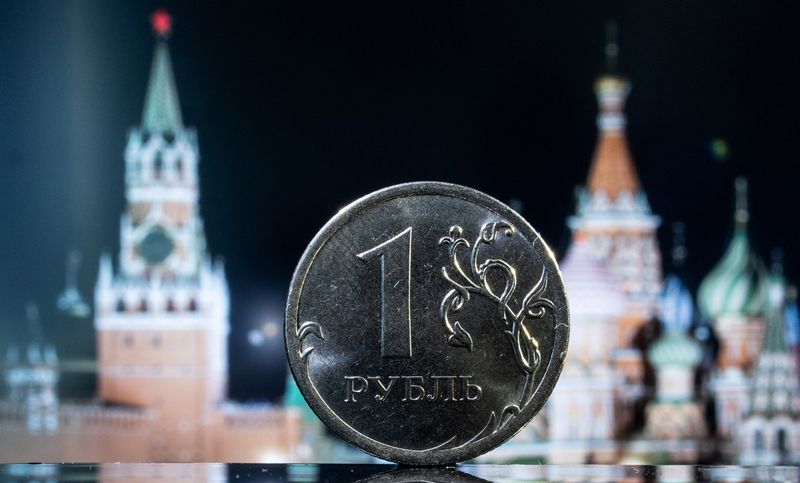(Reuters) - Russia's central bank will continue cutting rates to limit the depth of economic contraction this year as inflation will be lower than previously thought, a Reuters poll suggested on Thursday.
Russia's economic landscape changed drastically after Moscow sent tens of thousands of troops into Ukraine on Feb. 24, triggering sweeping Western sanctions, including a partial freeze of Russian reserves.
The average forecast among 15 analysts polled in late June suggested the Russian economy was on track to shrink by 7.1% this year. A similar poll in May had predicted a contraction of 7.6%.
Analysts' forecasts are gradually improving as officials revise their outlooks and fresh statistics arrive.
A presidential adviser said in May the economy will contract by no more than 5% in 2022. Just a month before that, the economy ministry had said gross domestic product could fall by more than 12%, in what would have been the biggest contraction since mid-1990s.
The rouble is expected to weaken in coming months after it reached a more than seven-year high of 50 to the dollar in late June thanks to a record current account surplus due to high prices for Russia's commodity exports and a fall in imports.
The rouble is expected to trade at 75.73 against the dollar in a year from now, according to the poll, compared with a rate of 77.80 predicted by analysts in late May. Thursday's official rate was at 51.16 roubles per dollar.
Inflation, one of the key concerns among Russian households, is expected to accelerate to 14.5%, from 8.4% in 2021, according to the poll - below last month's expectations of a 16.4% annual consumer prices increase.
A decline in inflationary expectations could give the central bank room to cut rates further to provide the stranded economy with cheaper lending.
"The strong rouble will contribute to a further slowdown in inflation. This will allow the Bank of Russia to cut the key rate at the July 22 meeting to 8-9%," Mikhail Vasilyev, chief analyst at Sovcombank, said.

The consensus forecast suggested the central bank would cut the rate to 9.0% in July from 9.5% at the moment, and to 8% by year-end.
In January, before the conflict in Ukraine, analysts had on average expected the economy to grow by 2.5% with year-end inflation at 5.5%. Russia targets inflation at 4%.